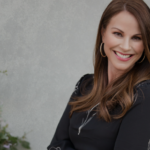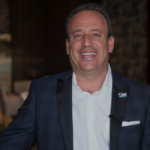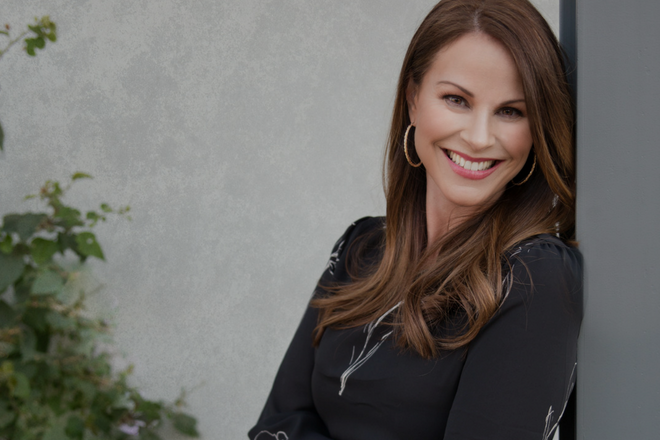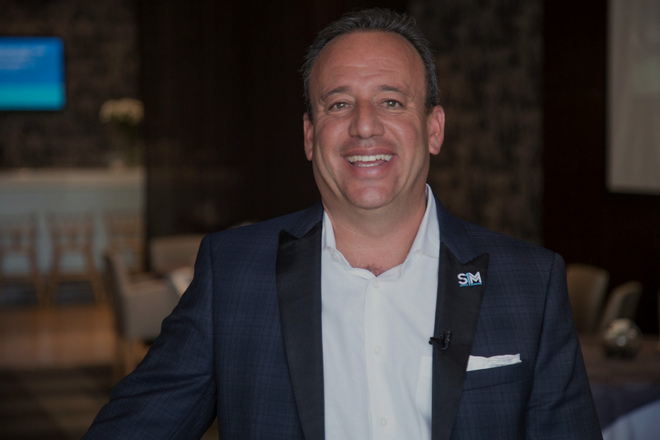“I’m committed to building a large company, which means I’m going to have to do things a lot differently.” And, it’s something I’m uncomfortable with doing. It doesn’t come naturally to me. The natural part is the trying to make money part and having a little business. What is not natural to me is building a long-term company that can even outlast myself.”
Anthony Tumbiolo – Founder & CEO of JAKT; Building a Sustainable Company versus a business; Creating company culture; Doing something uncomfortable.
Segment 1: (Length :04:00) – General Updates; Introduction to Anthony Tumbiolo and his journey as entrepreneur; Finding ways to make money; Building businesses from scratch; Teaching himself to code.
Anthony’s finer points:
“Since I’ve been I kid, I think it was early high school. I’ve been starting businesses. It’s something that comes very naturally to me. My first business that I started in high school was actually buying and reselling luxury purses online.”
“So, I basically figured out a little niche where I could play, where it was essentially arbitrage. Where I could buy purses for one price, sell it online for another.”
The biggest take away that stuck with me was, wow, the power of the internet. It's kind of crazy that I do not have to be sitting here and I can transact with people all over the world from my phone.
“And then, when I got to college I was also, still had that entrepreneurial gene and started doing events. So, it started just the basic, in New York, a common thing is promoting. So I did that a bit. But, wanted something bigger and more scalable.”
“So, long story short, there is that I created something called Intern Bar with one other person. And, the model was that we knew there was always interns coming into New York over the summer. The one question that they have is, where can we go out and drink, essentially?”
“And I was like,’Well, I know this city really well, I wonder if there is a business here?’ So, we put together a little online social network for all of these people. And then, over the summer we ran a bar series where we’d have everyone, once a week we’d be like, ‘Alright here’s the spots for this week.’ And made deals with the bars of the night. And then I’d also charge people and had a nice little business out of that.”
Also in school . . . I started learning how to code. . So, as you mentioned, I went to NYU. I actually have a Finance degree. But, in college, I learned how to code. And it came about because, I had a couple ideas for new businesses but, they all were software based.
“So I was like,’Okay, I don’t have any money.’ I’m in college right, so how do I do this? So, I just taught myself how to code. I was like, that’s the way how to do it. So I, picked up a book. And just started learning. And then I was like,’Oh wow, this is super interesting.’ Because now, I can design and build any solution that I want. I’m not constrained by what platforms currently exist.”
“So, that all led me to saying,’Hey, I think my next business is going to be a software company.’ I think it’s a great way to reach people at-scale. And, so that was my plan . . . to start a software business.”
“I started just consulting with other people. Just for free initially. I was just helping ’em out. Mainly on product strategy, business strategy. I was good at figuring out ways to make money. So I was like,’Hey, I can help you with that.’ But then it just happened that a lot of my recommendations were, let’s say, technology-driven at the time. Like,’Hey, what if we build this piece of software, here’s how it will affect your business.'”
So I started doing that for a bit and, eventually that turned into Jakt. Instead of building my own one single product, what I can do is, I can still reach millions and millions of people by working with a hand full of companies, helping them solve different problems using all my skills. In turn I would reach millions of people with the products I've helped create.
Segment 2: (Length :08:00) – Talking with Anthony Tumbiolo; Building a business versus building a company; Deciding whether to go all in or leave it all alone.
Anthony’s finer points:
“It was probably two years ago when things, not collapsed, but it could have because I started having people leave. There was churn on my team. One person left, then another, then another and another and it just made me think a lot about. I was like,”What am I doing here?”
“I thought everything was going well. I was bringing in new business, we were making money. And I was like, ‘This is great. I can just scale it like this.'”
“But then I realized, hey if there’s also no team., there’s also no business and I can’t do anything larger. My ambition is to do something very large, and it just made me think introspectively a lot about what makes a large company a large company. How did they get there?”
So I started talking to a lot of people and doing a lot of research. And then, this was nothing I was ever taught. But, then it was like, okay there's actually something here to build a sustainable, long-term company. To achieve a greater purpose, there's more that's needed than just, hey, making money.
“In fact, if you do those other things, which we can dive into, you’ll end up making more money. So, it’s funny how that works. I was so focused on the money that I wasn’t building a company.”
“So, yeah, it was kind of like it hit this point a couple years ago and then, I just realized I needed to do something differently.”
“When I started out and there was no money. I was never concerned about the money. I was concerned in the sense I need to live each month. But, I was so focused on just making my customers successful and, all of that. And then, one day it popped and I was like,’Oh, the company’s made a good amount of money.’ And I looked at it, and I was like,”Oh shit, this is nice'”
“And then I started focusing on it. And then I was like, how do a make a little bit more money and a little bit more money. And that’s all I could focus on. And then a funny thing happened. And it was just like, well then all of a sudden the bank accounts started going negative. Right? And, so it was just this really trippy part for me. And, kind of having to adjust there was kind of difficult.
So I did do a lot of thinking when this happened a couple years ago and I was trying to figure out what it was. Taking a step back, there was just a lot of introspective work. Looking at what happened over the last couple years, how it got to this point.
“If I’m still committed to what I’m building here, then I need to change things. And it was actually a decision, I was like,’Hey, should I actually just shut all this down?’ And be like, let me do something else. Because, building a company is really, really hard. And, I was like, ‘I’m going to need to change a lot here.’ And, do I want to go down this route?.'”
“I’m committed to building a large company, which means I’m going to have to do things a lot differently.” And, it’s something I’m uncomfortable with doing. It doesn’t come naturally to me. The natural part is the trying to make money part and having a little business. What is not natural to me is building a long-term company that can even outlast myself.”
“If there is no business and there is no money coming in, there is no long-term. So, how do you actually get up from the start. One is just having the knowledge . . . For me, if you’re just going in and you just think this is what business is, you don’t even know the other side of it.”
So one is just having the awareness. So, that's one thing I wish I could give people. Is just like hey, there is a difference, even though when you're starting out you may not think there is. There is a difference between building a business and building a company.
“It’s a balance. It’s looking into what does a company actually mean? And, thinking through the mission of the company, the purpose, the values. Building a team. Hiring, the culture, all of that stuff that is very hard to think about, initially. Because, you’re so focused on just making this thing work. Is just having faith that hey, invest in that stuff, simultaneously, and it will pay off in time.”
Segment 3: (Length :10:00) – Building a company culture; Having people with aligned values; Culture from the inside out.
Anthony’s finer points:
“So I used to do it just based on skill set, I was like hey,”I need a designer to come in and do this job.” Or, I need a developer to come in and do this job. It was all skills based. And had nothing to do with, are they a cultural fit? Are they right for the team? Etcetera. And that ended up just not working.”
“And so when I’m thinking about it today, like how we do it … Step one was actually defining that purpose and that mission and making it so that I could actually tell someone. So in the interview process, if that’s not clear, I can’t even tell someone that. And if we don’t have our values defined, right? How can we possibly hire against them?”
So now what we do, it's all about, when we're hiring someone, the most important thing is actually do they fit in line with the values that we have at Jakt? Are they onboard with this longer-term mission? Can they grow here? I think that's a very important one which, I never used to really care about. Not because, I don't care about people. It was just not something at the top of mind which was, hey people have both personal growth goals and company growth goals.
“And can Jakt be the vehicle to get them there, right? I’m not under this impression that people are just going to stay for life at Jakt, right? This could be something that they’re there for three or five years. But, can I, and can Jakt help them grow both personally and professionally? To get them to where they want to be. But, at the same time, are they bought-in to the mission of Jakt?”
“Those things are actually the most important thing when we’re interviewing, if someone is not aligned with the values of the company.”
“Or if I don’t think we can actually help them get to where they want to be, right? It’s just not a fit. And then secondary it’s like, yes, can you also do the job? Or do we think you can grow into the job?”
“Now it’s literally hiring or firing decisions are made based off that. And, that makes it so that you can actually focus on, as we’re building the culture, right? The culture is just a collection of people. Everyone contributes to it, right? I don’t say here, this is what the culture is. But, anyone who comes in adds to it. It’s like additive to the culture. So, but we get to choose who comes into this mix. And that’s a really cool thing.”
“Once you’re mindful of that, then we’re in control of how this culture evolves. Which was a little bit difficult when that wasn’t established and I was trying to now re-establish this. Given, we had existing people on the team. So, it’s been a little bit of a interesting experience. Taking an existing team and really instilling a good culture. But now, moving forward, because we have these things defined it’s gonna make it much easier.”
“Segment 4: (Length :03:00) – Hustler Thought of the Day:
You can't fail if you don't quit. - Anthony Tumbiolo
GENERAL NOTES:
Anthony Tumbiolo – Founder & CEO of JAKT
Anthony started his company, Jakt, a growing digital innovation studio in NYC offering design, development, business strategy and growth marketing, in 2012.
It started with Anthony working out of his apartment, working non-stop and pulling countless all nighters to make sure he could afford rent the next month. Some days he even rented out his own room on Airbnb and slept on the couch to save money. Long story short, he did whatever it took.
Today Jakt is an amazing team of people and the company has done 7 figures in revenue every year since 2014.
They partner with companies of all sizes, from startups to enterprises, to create bespoke digital products that solve problems. They’re on a mission to positively impact the lives of 100 million people by 2027 with solutions they’ve created.
Check out Anthony’s site HERE | Social for Anthony: Instagram | Facebook | Twitter
###








